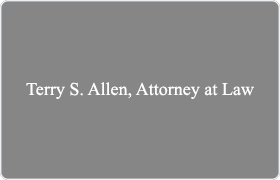Carlsbad DUI-DWI Lawyer, California
Sponsored Law Firm
-
 x
x

Click For More Info:
-
Terry S. Allen, Attorney at Law
316 South Melrose Dr Suite 206 Vista, CA 92081» view mapCriminal Defense Law Defending Your Rights
Terry Allen is a practicing lawyer in the state of California who handles Criminal and DUI cases.
800-852-8530
Terry Scott Allen
✓ VERIFIED *Status is reviewed annually. For latest information visit hereCriminal, DUI-DWI
Terry Allen is a practicing lawyer in the state of California.
Jacob Prescott Austin
✓ VERIFIED *Status is reviewed annually. For latest information visit hereCriminal, Felony, Misdemeanor, DUI-DWI, White Collar Crime
Over the years I have worked on cases spanning many areas of law such as marriage dissolution issues, transferring trademarks, elder abuse, financial ... (more)
Ashby Clark Sorensen
✓ VERIFIED *Status is reviewed annually. For latest information visit hereCriminal, Felony, DUI-DWI, Misdemeanor
Defense lawyer, Ashby C. Sorensen was born and raised in Virginia just outside of our nation’s capital, Washington, D.C.. He is a graduate of Univer... (more)
Bradley Patton
DUI-DWI, Misdemeanor
Status: In Good Standing *Status is reviewed annually. For latest information visit here
Andrew Michael Limberg
DUI-DWI, Criminal
Status: In Good Standing *Status is reviewed annually. For latest information visit here
Richard L Duquette
Misdemeanor, Felony, DUI-DWI, Criminal
Status: In Good Standing *Status is reviewed annually. For latest information visit here
Richard L Duquette
Litigation, Misdemeanor, Felony, DUI-DWI, Criminal
Status: In Good Standing *Status is reviewed annually. For latest information visit here Licensed: 42 Years
 Terry Allen Vista, CA
Terry Allen Vista, CA AboutTerry S. Allen, Attorney at Law
AboutTerry S. Allen, Attorney at Law Practice AreasExpertise
Practice AreasExpertise


